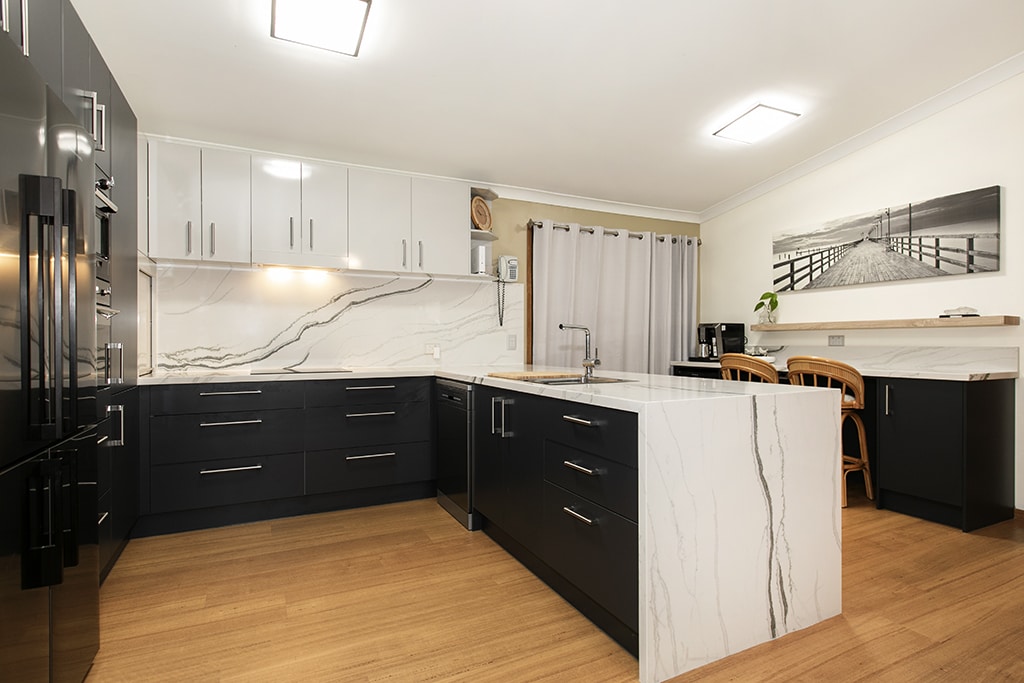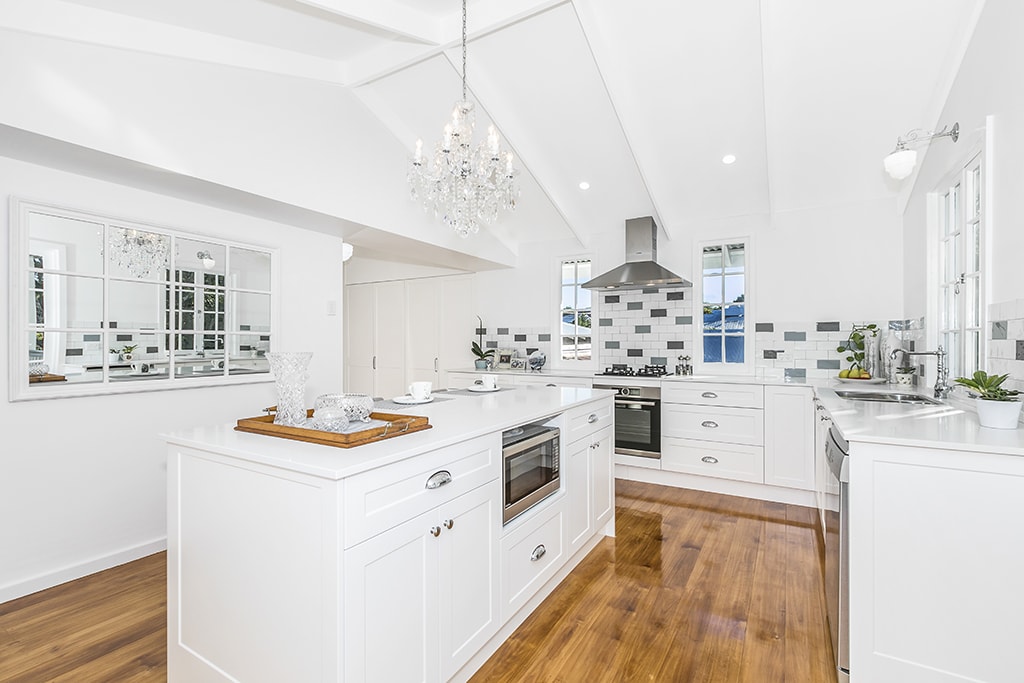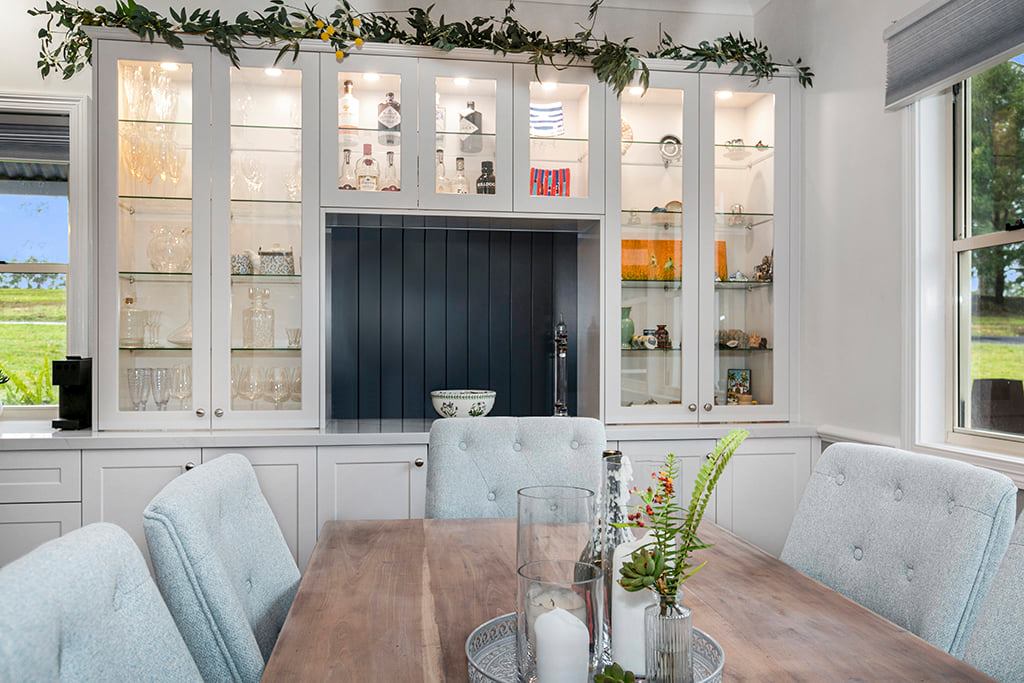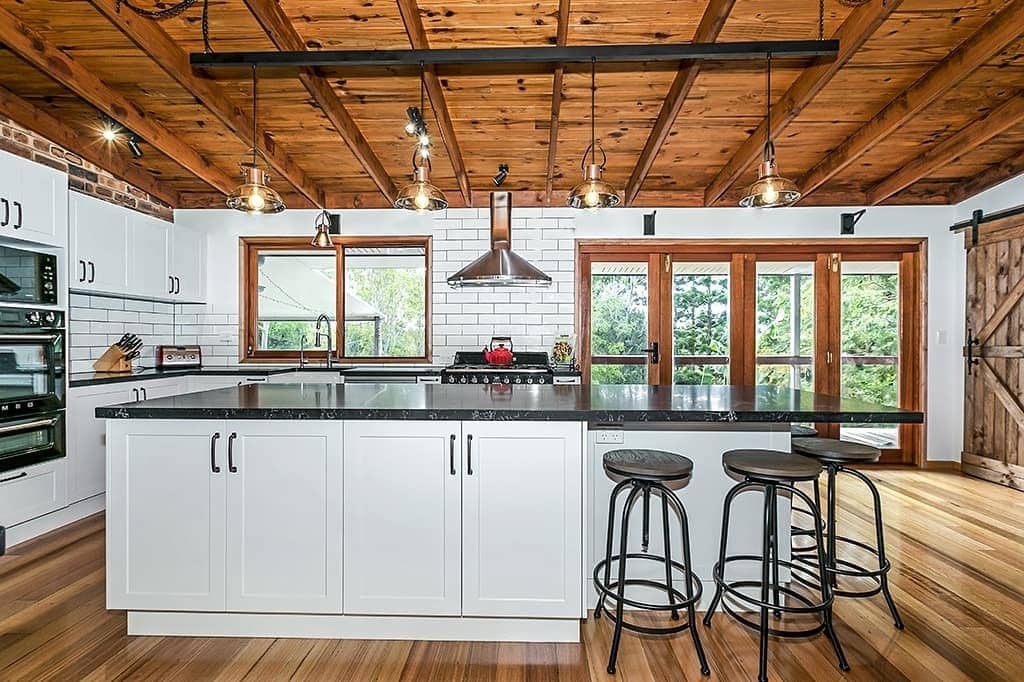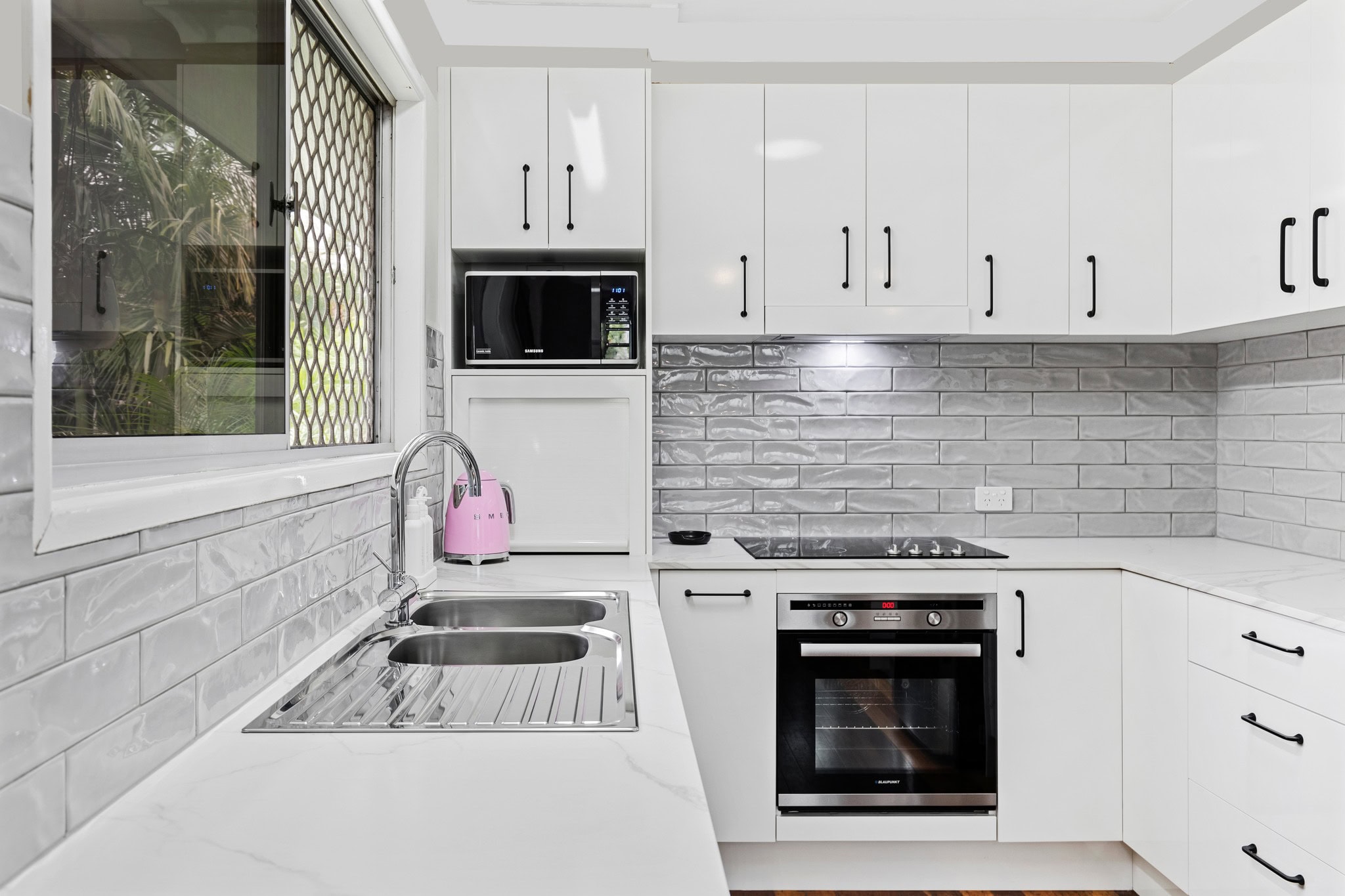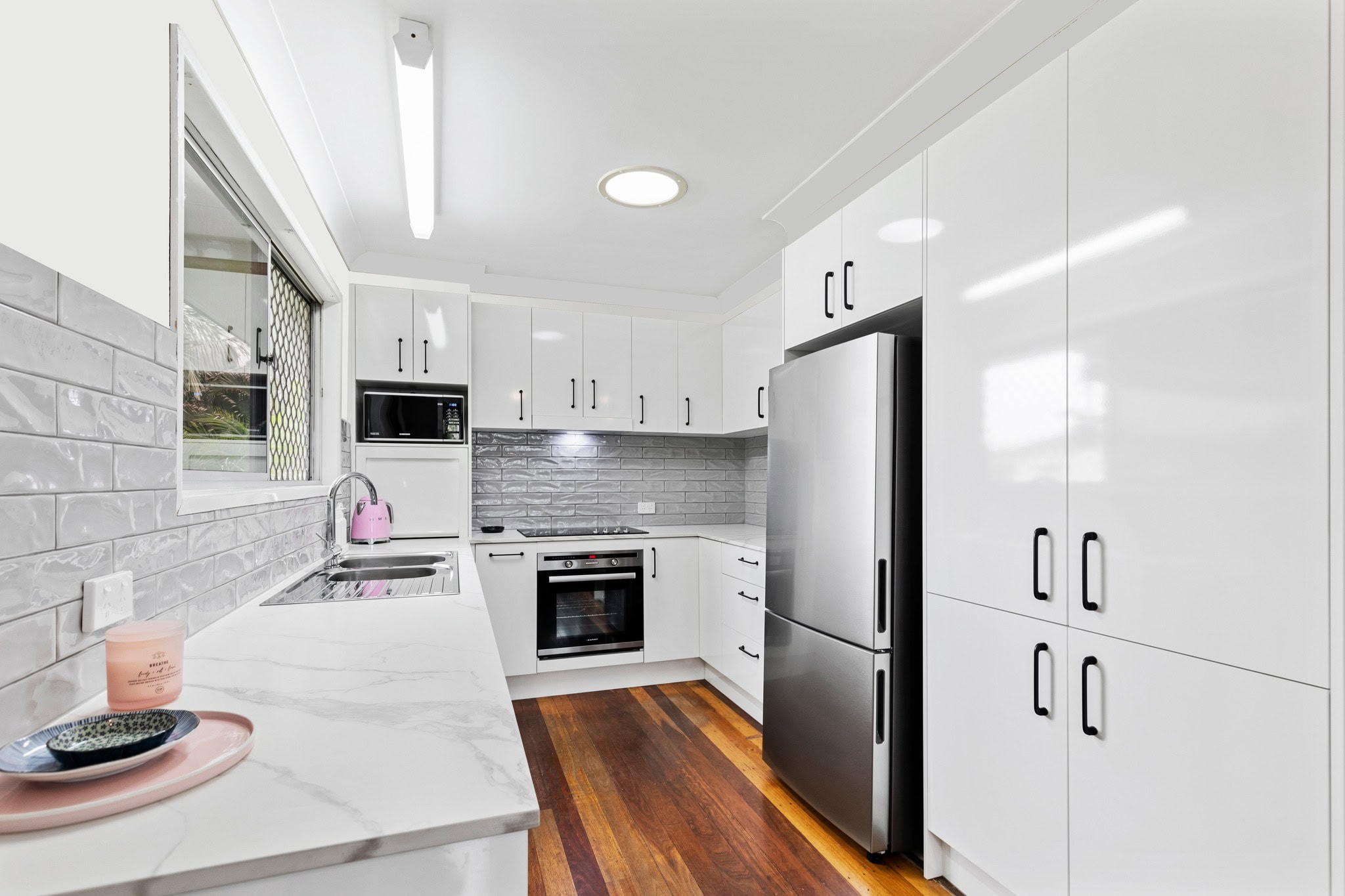Natural stone vs Engineered stone for your kitchen renovation
When designing or renovating your kitchen, one of the most significant decisions you will make is which kitchen benchtop to choose. For centuries, natural stone has been a coveted feature within homes that offers a sense of elegance and luxury to the surroundings. With the advancements of modern technology, engineered stone is now also becoming an increasingly popular choice in Australian homes for its highly competitive features, benefits and attractive price point. Offering the beauty of natural stone with less maintenance and a reduced price tag, engineered stone benchtops are rapidly becoming a favourite feature.
Both natural and engineered stone are excellent kitchen benchtop options with varying advantages that should be considered before making your decision. Though highly influenced by budget, your decision can impact the longevity of your kitchen space and the future value of your overall home. To assist with your decision-making, we have compiled a list of important pros and cons worth considering before making your final choice.
What is Engineered Stone?
Engineered stone is a non-porous material manufactured with 93% natural quartz granules – one of the hardest minerals on earth. These quartz materials are bound together with resins or a polyester base and pigments, resulting in a wide variety of colours and natural patterns to choose from.
Some types of engineered stone are:
- Caesarstone
- Quartz
- Icestone (glass & cement)
- Silestone
- Cambria
- Concetto
The Pros of Engineered Stone
- Cost-effective – Engineered stone is a beautiful alternative for those that love the look of natural stone but want a more budget-friendly price tag.
- Uniformity – While natural stone offers a unique pattern to each slab, engineered stone provides a more uniform result which is popular for keeping consistency in colour and tones throughout the kitchen space.
- Increased durability – A non-porous material, engineered stone is scratch resistant, waterproof and mould resistant, making it a superb option for a family home. Not requiring regular sealing, engineered stone is an excellent choice for busy homeowners.
- Eco-friendly – Engineered stone is an excellent choice for those desiring an option that uses sustainable building materials. Though offering a raw earthen beauty, natural stone is quarried directly from the earth using resources developed over the centuries that require additional resources to cut and finish. Man-made and synthetically manufactured on demand, engineered stone uses quartz granules and other stones that reduce the wastage of natural resources.
- Maintenance-free – Due to its increased durability, engineered stone has an excellent life span that keeps its luxurious properties and appearance with minimal upkeep.
The Cons of Engineered Stone
- Decreased heat and UV resistance – Comprised of a mixture of stone and resin, engineered stone can be damaged when exposed to high temperatures. Additionally, engineered stone is not preferred when in areas exposed to extended amounts of light or outdoor settings due to the polyester resin used in its manufacturing that will degrade when exposed to UV.
- Uniformity – Though seen as a positive of engineered stone due to the consistency it brings in style, patterns and colours, the uniformity of the product can often be a negative feature that requires consideration. Synthetically made, this uniformity of engineered stone can sometimes make the product appear ‘too perfect’, resulting in a somewhat unnatural appearance. Something to keep in mind when choosing your slab!
What is Natural Stone?
As its name suggests, natural stone is a raw material quarried from the earth and has avoided exposure to harmful treatment or chemicals in its production. Therefore, remaining in its most ‘natural’ form.
Some types are natural stone are:
- Marble
- Quartzite
- Soapstone
- Limestone
- Slate
The Pros of Natural Stone
- Unique – No two slabs of natural stone are the same. Cut directly from the earth, your kitchen benchtop is a ‘one of a kind’ feature. Each slab has its unique veining, colour and pattern.
- Durability – Natural stone is heat resistant and highly durable, offering increased natural resistance to UV. Though not indestructible, natural stone is hardy and long-wearing when cared for and regularly sealed.
The Cons of Natural Stone
- Maintenance required – Natural stone is a porous material and is prone to damage, such as scratching and staining from coloured liquids. Regular cleaning and maintenance, plus sealing of the stone, can improve the natural stone’s longevity and overall wear and tear.
- Heavy – Due to its weight, installation times can be longer than engineered stone. Additionally, some homes may require reinforcements to withstand the natural stone’s structural pressure on its flooring and cabinetry.
- Expense – Natural stone is the most expensive choice for kitchen benchtops. However, when properly cared for, natural stone can keep its luxurious condition and prove a cost-effective investment. Keep in mind that engineered stone offers a luxurious result at a fraction of the cost without compromising on quality.
It is easy to see how the choice between natural and engineered stone can be more complicated than expected. Both have excellent qualities and benefits, but in the end, the choice of benchtop lies within your needs and budget. Whether you desire the raw earthen beauty of natural stone or want to experience the excellence of modern technology and the luxury of engineered stone, your choice of kitchen benchtop will become a beautiful feature point in the heart of your home.
At Modern Kitchens Northside, we offer professional advice that helps you choose the ideal benchtop to complement your kitchen design and budget.
Call Modern Kitchen Northside today on 07 3889 9054 to speak to our expert team about how we can help you create your dream kitchen or book in a showroom tour.


